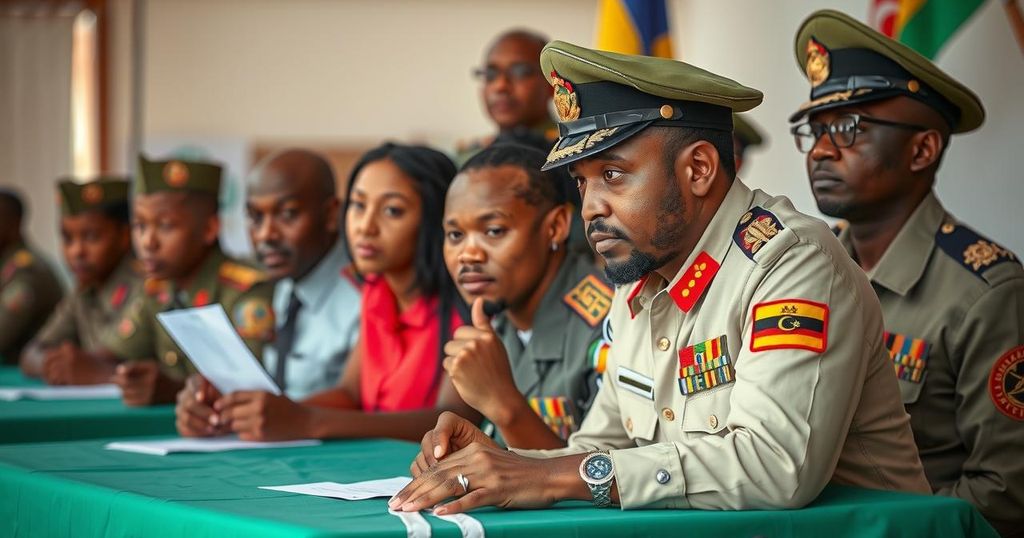Chad Holds General Election Amidst Opposition Boycott and Low Turnout

Chad held a general election amidst calls for boycott by opposition groups, resulting in a low voter turnout of 38 percent. Despite government assertions of a democratic transition, allegations of fraud and voter apathy suggest widespread disillusionment. President Mahamat Idriss Deby Itno urged citizens to vote, highlighting the contrasting perspectives regarding the election’s legitimacy.
Chad participated in a critical general election on Sunday aimed at transitioning from three years of military rule. Voter turnout was reported at a mere 38 percent, as opposition parties had encouraged a boycott, asserting that the election results had been preordained. President Mahamat Idriss Deby Itno, whose rule was cemented after a controversial election in May 2021, called for mass participation. Critics, including Succes Masra of the Transformers party, argued that significant portions of the populace refrained from voting, indicating widespread disillusionment with the electoral process. Election officials pointed to adverse weather conditions for the low turnout, while others voiced concerns about the legitimacy of the elections amid accusations of fraud and manipulation.
Despite the boycott by opposition parties, some individuals expressed hope for change. Patrice Lumumba Deoumoundou articulated aspirations for improved job prospects, justice, and equality, reflecting the public’s desire for tangible transformations. However, skepticism remains pervasive, with citizens like Herve Natouingan questioning the efficacy of the electoral process. Meanwhile, the military and nomadic groups reported higher participation rates, suggesting disparities in engagement across demographics.
The backdrop of the elections includes ongoing security threats from Boko Haram and accusations of military interference in regional conflicts. The Chadian government presents these elections as the final move towards establishing a democratic framework, a process initiated following the death of the long-serving previous president and Deby’s subsequent rise to power. Foreign observers and political representatives monitored the elections, with notable reports of voting irregularities emerging as the day unfolded.
The general election in Chad represents a significant juncture following three years of military rule initiated after the death of former President Idriss Deby Itno in 2021. The country’s political landscape has been marred by allegations of electoral fraud and political repression, particularly against opposition parties. The legitimacy of the current government’s call for elections is contested by multiple stakeholders who claim that the results are pre-determined. The involvement of foreign observers suggests efforts to enhance transparency amid widespread skepticism regarding the electoral process. In this context, socio-economic challenges, including job scarcity and the impact of climate change on livelihoods, exacerbate public discontent toward the current administration.
Chad’s general election serves as a critical test of its transition from military to civilian governance after three turbulent years. However, the low voter turnout driven by opposition-led boycotts reflects significant public disillusionment with the political process. Accusations of fraud and manipulation loom over the electoral proceedings, overshadowing the government’s efforts to portray these elections as a step toward democracy. This election underscores both the aspirations for change within the Chadian populace and the existing challenges to achieving genuine political reform.
Original Source: www.rfi.fr







